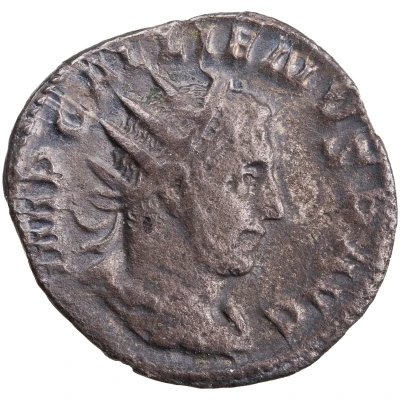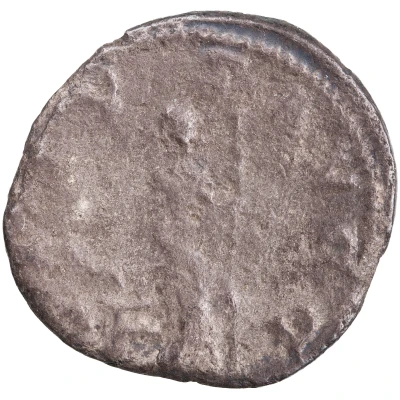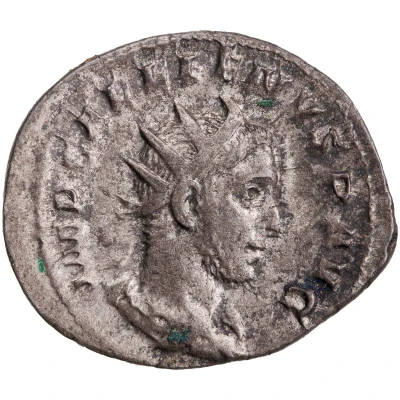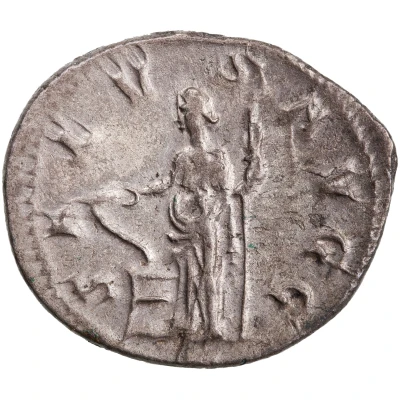


© American Numismatic Society (ANS)
Antoninianus - Gallienus SALVS AVGG; Salus
| Silver | 3 g | 21 mm |
| Issuer | Rome › Roman Empire (27 BC - 395 AD) |
|---|---|
| Emperor | Gallienus (Publius Licinius Egnatius Gallienus) (253-268) Valerian (Publius Licinius Valerianus) (253-260) |
| Type | Standard circulation coin |
| Years | 257-258 |
| Value | Antoninianus (1) |
| Currency | Antoninianus, Reform of Caracalla (AD 215 – 301) |
| Composition | Silver |
| Weight | 3 g |
| Diameter | 21 mm |
| Shape | Round (irregular) |
| Technique | Hammered |
| Demonetized | Yes |
| Updated | 2024-10-05 |
| Numista | N#286373 |
|---|---|
| Rarity index | 100% |
Reverse
Salus, draped, standing left, feeding out of patera in right hand serpent rising from altar and holding sceptre in left hand.
Script: Latin
Lettering: SALVS AVGG
Translation:
Salus Duorum Augustorum.
Health of the two emperors (Augusti).
Comment
Mass varies: 2.29–4.36 g;Diameter varies: 21–21.3 mm;
Example of this type:
American Numismatic Society (ANS)
Source:
Online Coins of the Roman Empire (OCRE)
Interesting fact
The Antoninianus coin, which was issued during the reign of Gallienus (257-258 AD), was a significant departure from the traditional Roman coinage design. It featured a new portrait of the emperor, with a more naturalistic and individualized depiction, rather than the usual idealized image. This change in design was a reflection of the growing influence of the Renaissance movement, which emphasized realism and humanism in art. The coin's design also included the goddess Salus (Salvation) on the reverse, which was a departure from the traditional Roman coinage that featured gods and goddesses. This change was seen as a way to promote the idea of the emperor as a savior figure, and to emphasize the importance of the emperor's role in maintaining the safety and well-being of the empire.

